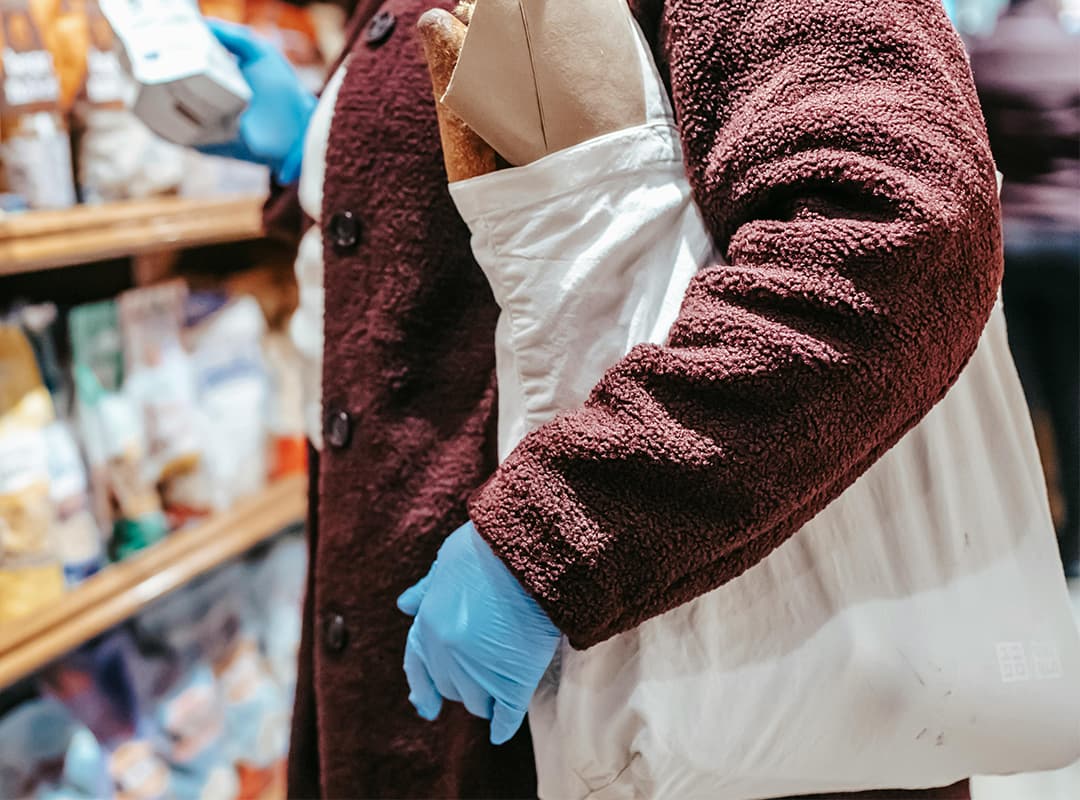
How to Choose a Quality Eco-Bag: A Guide to Sustainable Shopping
With sustainability becoming a priority for consumers, eco-bags are more popular than ever. Whether you’re looking for durable grocery bags or eco-friendly produce bags, finding a high-quality option can make a significant difference in reducing waste and enhancing your shopping experience. But with so many options available, how do you choose the right one? In this article, we’ll break down the key factors to consider when selecting a quality eco-bag that suits your needs and lasts for years.
1. Material Matters
The first thing to look for in a quality eco-bag is the material. Durable and sustainable materials, such as organic cotton, jute, or recycled polyester, are excellent choices. These materials are not only long-lasting but also biodegradable or recyclable, making them better for the environment compared to traditional plastic bags.
- Organic Cotton: Ideal for both grocery bags and produce bags, organic cotton is a renewable resource that can be easily washed and reused. It’s also a breathable fabric, which helps keep your produce fresh longer.
- Recycled Polyester: This is a good option if you need a water-resistant bag for heavier groceries or wet items. Bags made from recycled polyester help reduce plastic waste by reusing existing materials.
Make sure to check the stitching and overall construction of the bag. Well-made bags with reinforced seams will hold up better under heavy loads and frequent use.
2. Size and Capacity
When selecting a reusable eco-bag, consider how much space you’ll need. If you’re looking for a bag to carry groceries, choose one that is spacious and sturdy enough to hold multiple items without tearing. Some eco-bags come with built-in compartments or pockets that help organize your shopping, which can be especially useful when carrying fragile items like eggs or bottles.
For produce bags, opt for smaller, lightweight bags that are easy to carry around in your larger grocery bag. Mesh produce bags are particularly good for fruits and vegetables, allowing airflow and reducing moisture build-up, which helps extend the life of your produce.
3. Comfort and Portability
Comfort is key, especially if you’re using your eco-bag for regular grocery shopping. Look for bags with wide, reinforced straps that distribute weight evenly across your shoulders. Thin or weak handles can dig into your skin, making heavy loads uncomfortable to carry.
Additionally, some eco-bags are designed to be foldable or come with small pouches for easy storage when not in use. These are ideal for keeping in your car or bag for spontaneous shopping trips. A lightweight and portable design makes it more convenient to always have your bag on hand, so you can avoid using plastic bags when you shop.
4. Multipurpose Use
A high-quality eco-bag should be versatile enough for multiple uses beyond grocery shopping. Many people use their reusable bags for other errands, such as carrying books, gym clothes, or even work supplies. Investing in a durable, multifunctional bag means you won’t need to buy multiple bags for different purposes, reducing overall waste and saving you money in the long run.
Consider bags that can handle a variety of situations, from groceries to beach trips or even gym essentials. A well-made, durable bag can last you through a wide range of daily activities.
5. Eco-Friendly Certifications
It’s also important to look for eco-friendly certifications or labels that confirm the bag’s sustainability. Certifications like GOTS (Global Organic Textile Standard) for organic cotton or the Global Recycled Standard (GRS) for recycled materials ensure that the bag was produced in an environmentally and socially responsible manner.
While not every quality eco-bag will have certifications, opting for bags that meet these standards ensures you’re supporting brands that prioritize sustainability and responsible manufacturing processes.
6. Ease of Cleaning
One of the most overlooked factors in choosing an eco-bag is how easy it is to clean. Reusable bags, especially those used for groceries, need regular cleaning to avoid the build-up of bacteria and odors. Cotton bags are usually machine-washable, while bags made from recycled materials may need to be wiped down by hand. Look for cleaning instructions when purchasing, and choose a bag that fits your lifestyle.
Choosing a quality eco-bag is an investment in both convenience and sustainability. By considering the material, size, durability, and additional features like portability and eco-certifications, you can find a bag that not only meets your needs but also helps reduce your environmental impact.
Whether you’re shopping for sturdy grocery bags or breathable produce bags, a well-chosen eco-bag will serve you for years and make every shopping trip more sustainable. By making thoughtful choices in our everyday purchases, we can all contribute to a greener future, one bag at a time.